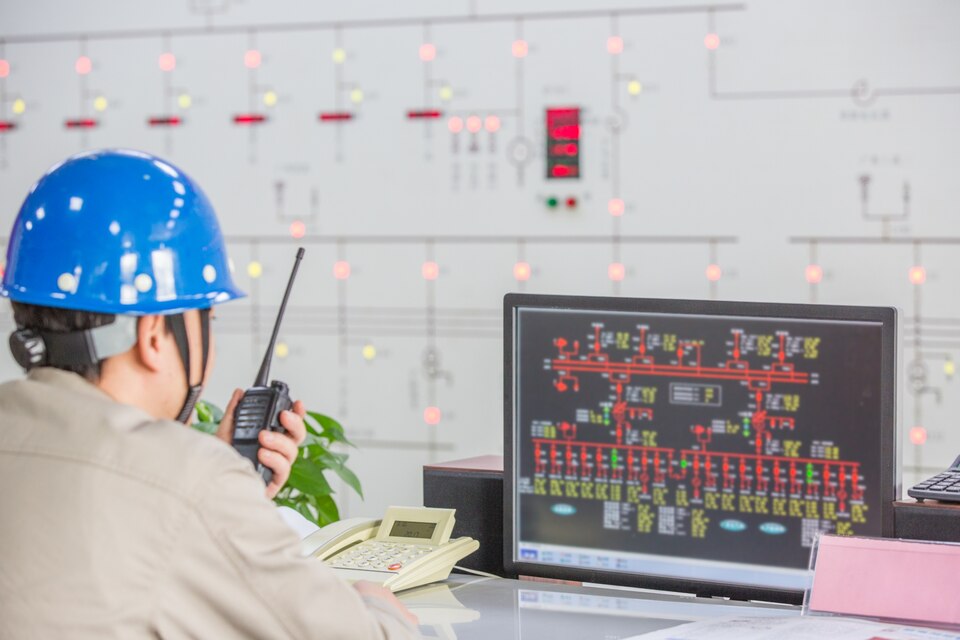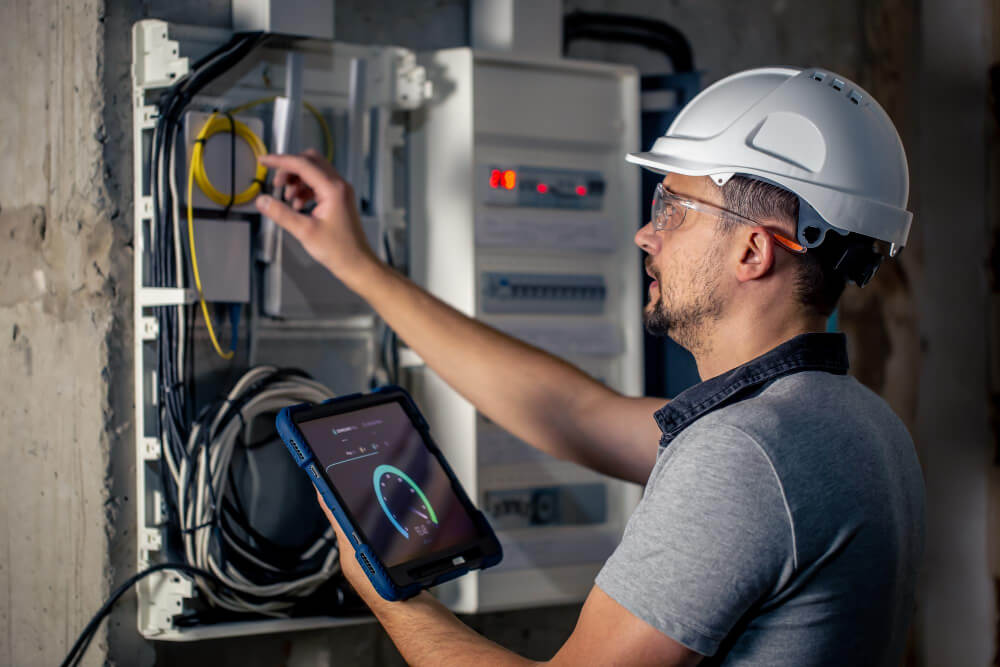
Design and Control of Electrical Systems
Introduction
In a nutshell, electrical systems design and control is what emphasizes the modern infrastructure approach by providing the basis for effective distribution and management of power consumption in residential, commercial, and industrial applications. Safety, efficiency, and innovation are all guaranteed from designing detailed layouts through the implementation of complex control systems: electrical systems design and control.
In this blog, an analysis of electrical systems design and the place of electrical contractors in this field will be undertaken along with a discussion on the various types of control systems that are integrated into modern technology. Also, it will look at how the EPOWER solutions are designed to supplement and improve these systems for better safety and performance reliability.
What is Electrical System Design?
It includes the design which is planning and development of an electric system in any building or facility. It creates an effective electric power distribution layout Blueprint that will supply all necessary areas with the supply of power safely and efficiently.
Designs usually start with the understanding of certain factors, such as the load criteria and efficiency goals connected to the building, plus all kinds of safety needs for the structure. With this information, engineers use that to draw detailed schematics and layouts indicating all the uses and applications of elements such as their wiring, transformers, distribution panels, and protective devices.
Proper planning helps safeguard the future expansion plans, minimizes energy losses in the project, and installs the system within the confines of the local codes and standards.
With the development of technologies, electrical systems are not as simple anymore. They are more going into the incorporation of intelligent systems thus modern-day buildings are understood as Building Management Systems (BMS). Kicking the benefit of having systems that can be monitored or controlled in real time, this design promises a more efficient use of energy along with the safety it provides with interest in detecting faults or damages beforehand.
Design Electrical Contractors
Electrical contractor plays an important role in turning designs into reality. They are responsible for installation, maintenance, and troubleshooting all types of electrical systems within the buildings and facilities.
Part of the role of contractors is to validate that installation meets the design specifications, the safety requirements and that it complies with the respective code. Contracted engineers and architects will work with other disciplines to ensure that the electrical system is well integrated into the building infrastructure. They also play a significant role in ascertaining problems the installation may bring forth like balancing loads or grounding issues.
Apart from installations, these modern designers use advancements of emerging technologies like smart controls and renewable energy systems. Incorporating these technologies yields a firm that develops sustainable and future-ready electrical networking networks. EPOWER solutions, for instance, offer contractors advanced instruments for monitoring and managing safety in real-time, adding another dimension of efficiency and reliability to their projects.
Types of Electric control systems
Electrical control systems lay the foundation of automation and power management, enabling precise control over different processes. These systems can be classified according to their functions and applications concerning the amount of complexity they support.
1.Open-Loop Control Systems:
They are often prescription input systems in open circuits. Although such systems are simple and economical, they are inflexible. Simple examples include simple lighting controls, motor starters, etc.
2.Closed-Loop Control Systems:
The feedback information employed in a closed-loop system is meant to adjust performance to ensure real-time monitoring and control. For instance, temperature control systems in HVAC units formulated direct feedback from the sensors of HVAC units to meet desired settings. Such systems provide more accurate, efficient operations than open-loop systems.
3.Programmable Logic Controllers (PLC):
PLCs are the building blocks for industrial automation. They implement primary programmable commands to control very complex processes and significantly integrate or connect to sensors and actuators to control a machine or system perfectly.
EPOWER has smart solutions that are integrated into these control systems by including safety features such as real-time hazard detection and automated responses to make modern electrical designs today feasible.
New ideas that stir up the transformation of electrical system by way of EPOWER
With advanced safety and monitoring technologies, EPOWER brilliantly formulates concepts for design and control of electrical systems. Solutions, which are often associated with various problems, are simply added values on our endless reliability and efficiency promise.
Thermal Monitoring is one of EPOWER’s features. It is designed to detect abnormal rises in temperature in electrical circuits and send LED notifications to users via smartphone alerts for prompt action toward fire hazards or damage to the equipment.
EPOWER has an integrated architecture compatible with all modern control systems like BMS and PLC. It ensures that all electrical systems are safe, highly efficient, and scalable according to the requirements for each project.
EPOWER has provided electrical solutions for systems that have changed their levels of safety and performance that keeps building owners and operators at peace.
Conclusion
Wiring design and control efficacy are of great essence in making power delivery safe and efficient in a company. Every stage from detailed planning by engineers to hands-on practice with other contractors is vital in ensuring the reliability of the electrical network. There is also information of different control systems types, which reiterates the importance of advanced technologies for management and automation of power distribution.
The EPOWER innovative solutions enhanced every aspect involved in the design and control of electrical systems with regard to safety and efficiency. It assures businesses as well as contractors the best future-proof safety and performance with “smart” technologies such as EPOWER.



